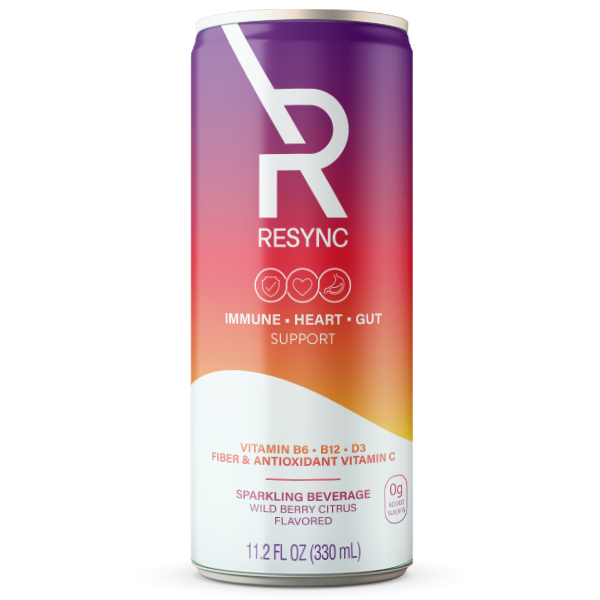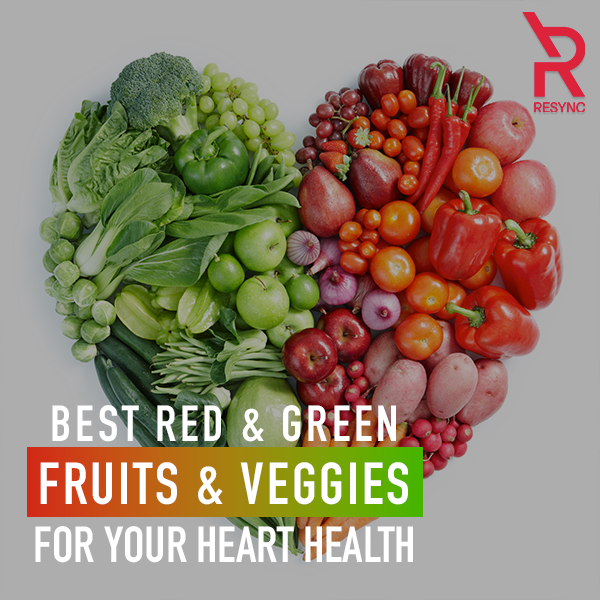Resync
10-26-2022
Are Carbohydrates
The Enemy?

Atkins, Keto, South Beach diet, Carnivore...
Every now and then, we see a new low-carb diet that promises we will lose 10 pounds in a week. If you have already tried one, you know it is not easy. Maybe you lost some weight just to gain it right after eating a carb-rich meal, or perhaps you felt you couldn't do it.
Avoiding carbohydrates can be frustrating and may not be your best diet plan. I don't want to disregard low-carb diets because they are beneficial and efficient if done correctly. But this is a topic for another article.
Today, let's focus on carbohydrates and why they are so misunderstood and how they are used by the body.
First, let's review the types of carbohydrates. We usually separate them into simple or fast carbs and complex or slow carbs.
However, there is a massive difference between those two that can impact you physically and emotionally—more on the emotional aspect in the next blog.
So, for now, let's focus on the significant differences between them so you can clearly understand which ones to consume more frequently with no guilt trip.
Simple carbohydrates, also known as simple carbs or simple sugars, are made of short chains of glucose molecules. Because of their limited length, they are quickly digested by our gut, causing a higher spike in our blood sugars (high glycemic response).
On the other hand, complex carbohydrates are long chains of glucose molecules that are digested more slowly than simple carbs. Therefore, the glycemic response to these carbs is moderate.
More on that later on.
There is a third type of carb I didn't mention, and it is fiber. Fiber is unique, and we dedicated a whole post to it.
Click here to read it and understand the value fiber provides for our gut health and overall wellness.
Sugar, fruit juices, candy, chocolate, donuts, fries, baked goods, and soda are high in simple, fast carbohydrates.
Generally, health professionals will advise you to limit your consumption of these foods as much as possible.
Why?
The rapid increase in blood glucose is not desirable unless you are about to perform a demanding physical activity requiring a high level of fast-digesting glucose. The problem is that we often consume many of these simple carbohydrates while living a sedentary lifestyle, and the outcome is overweight and metabolic disease.
Let's explain this a bit further.
After consuming a load of simple, fast carbs, our blood glucose increases aggressively. In response to high blood sugar, our pancreas secretes a hormone called insulin that travels through our blood and binds to cells in our body. When insulin is attached to the receptors in our cells, it allows the cell to absorb glucose.
Once inside our cell, glucose is used for energy production. However, if there is no demand for energy, all that glucose will be stored in our fat stores (adipose tissue). This is how excess consumption of simple sugars can lead to weight gain, and the problem can snowball from there.
Too much weight gain leads to obesity, which is associated with many diseases such as diabetes mellitus, cardiovascular disease, hyperlipidemia, hypertension, polycystic ovarian syndrome, and non-alcoholic fatty liver.
You must remember that many of the above-mentioned foods are high in calories (energy-dense) and highly processed – impacting our gut and microbiome health. Therefore, it is wise to only eat these foods sporadically, even if you are physically active.
Moreover, fruits also have simple sugars.
The good news is that fruits contain other health-promoting compounds such as vitamins, minerals, antioxidants, and fiber. This is important because fiber will reduce the glycemic response to fruits, which is why eating fruit is always better than juicing.
If you are trying to lose weight, I recommend limiting the consumption of certain fruits, such as dates, mangos, bananas, and grapes, as these are higher in glucose. Other fruits, such as blackberries, blueberries, raspberries, strawberries, (any berries) are incredibly diet friendly, so make sure to consume them daily. We need all these vitamins and minerals for our bodies to function correctly.
Now let's talk about complex, slow carbs.
These are foods like, whole-wheat bread, brown rice, quinoa, oatmeal, beans, and starchy veggies.
Just like fruits, complex carbs are fiber-rich and have a more measured glycemic response. Ideally, most of the carbs you consume should be complex. This will help you avoid high glucose spikes, increase and preserve your insulin sensitivity, and delay the digestion of the foods you consume.
White flour, white rice, and white bread are also complex carbs. The only difference is that these lack fiber. Because of that, they have a higher glycemic response, although not as high as simple sugars.
Have you ever heard that you should not eat rice passed 5 pm?Or that white rice and white bread will make you fat?
Well, those are two misconceptions.
Carbs don't make you gain more weight if you eat them respectfully at night. What happens is that, usually around dinner time, our day is coming to an end. Thus, we won't require a lot of energy. On the contrary, we are probably going to sleep soon.
Excess calorie consumption coming from carbohydrates, fats, and even protein can be stored in our fatty tissue. It is not just carbs. It is more about total daily calorie consumption.
Therefore, we should consume our remaining calories of the day and abstain from overindulging right before going to bed.
However, there are exceptions to this. For example, if you work out around 6-7 pm and have dinner at 8 pm, you should have a meal rich in protein, carbs, and healthy fats to replenish your stores.

4 KEY BENEFITS OF FIBER BEYOND GUT HEALTH
Like & Subscribe to our youTube channel for educational videos on the latest hot topics in the industry
VISIT YOUTUBE CHANNELAfter this review, I hope you can conclude that carbohydrates are important for our health.
Vegetables are carbs and without them your cardiovascular system will be impacted.
They provide us with energy to perform our daily activities, and carbohydrate-containing foods have vitamins and minerals that our bodies need for many purposes, along with the key nutrient, fiber.
There is no reason to fear carbohydrates.
What is important is to prioritize complex, not packaged processed carbs over simple carbs.
As a general recommendation, adults should consume 45 to 55% of their total calories from carbohydrates and limit simple sugars to less than 100 kcal a day.
Complex carbs alone won’t make you fat, they are not the enemy - excess calories and excess simple sugars from processed carbs, on the other hand, are detrimental to your waistline and your health.
Check Out Our Other Blogs

Can A Beverage Have As Many Nutrients As A Salad?

A Guide On How To Select The Best Veggies & Why Their Color Is Important

Shocking Facts You Should Know About Keto & Collagen
We Want To Hear From You!
Want the practical details on how to eat and supplement to support your exercise recovery, heart health, beauty, and energy levels?
Subscribe to our feed and never miss out!
Resync is backed by research. That’s why we break down complex science into practical takeaways you can use today. When you have the right information, you are empowered to make the right decision for you.
If there's something you want to know more about, let us know by contacting us or getting in touch on social media!
Helping you lead a healthier life,
-The Resync Team
Authors

Natasha Sugimoto, RD
Tags
Gut Health
Nutrition
Guide
Disclaimer
This content is for general informational purposes only, and does not constitute the practice of any professional healthcare service, INCLUDING the giving of medical advice. No provider-patient relationship is formed. The use of this information, and the materials linked to this content is at the user's own risk. This content is not intended to be a substitute for professional medical advice, diagnosis, or treatment. Users should abide by the advice of their healthcare provider, and should not disregard or delay in obtaining medical advice for any medical condition they may have.
Want To Receive More Nutritional Guidance?
Sign up for our newsletter & get 20% off your order PLUS the latest information to support your health & wellness!






